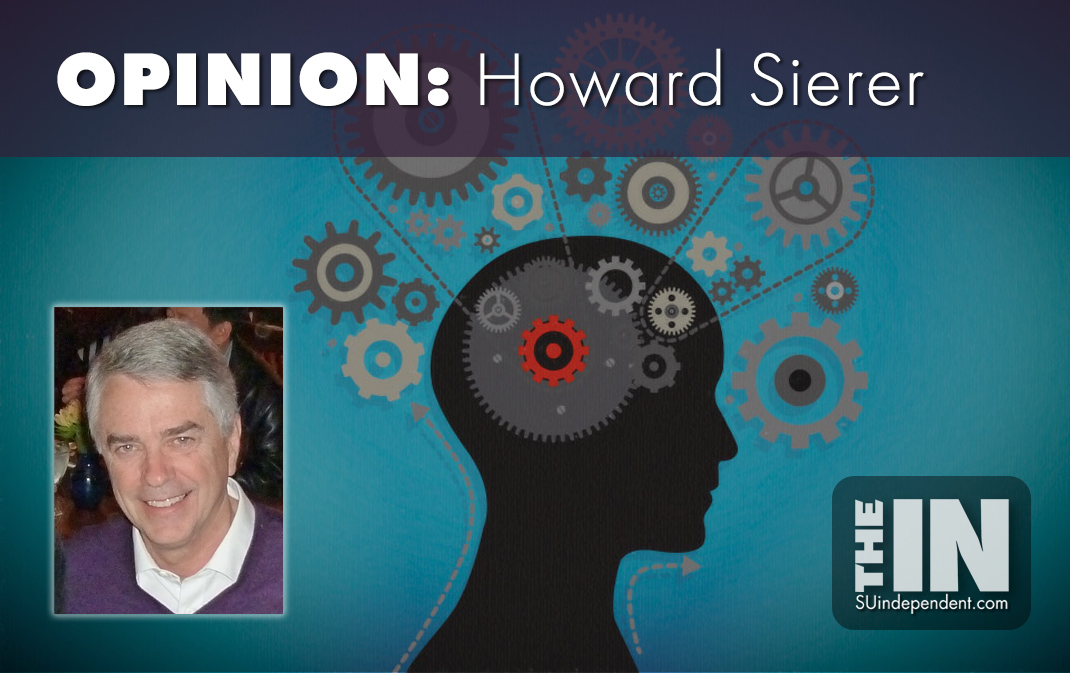
We Are What We Remember
– By Howard Sierer –
Who are you?
The natural response to that question in a business or social setting would be to give your name and, depending on the circumstances, an applicable organizational affiliation or your home town. If asked for more, most of us would begin describing where we were born and raised, where we went to school, our work or our family.
In a wonderful essay entitled “We Are What We Remember,” the late Rabbi Jonathan Sacks explains that “The answer to the question ‘Who am I?’ is not simply a matter of where I was born, where I spent my childhood or my adult life or of which country I am a citizen. Nor is it answered in terms of what I do for a living, or what are my interests and passions. These things are about where I am and what I am but not who I am.”
He follows with an explanation of how Jewish history and tradition answer the question and then explains that the answer to this question applies equally to the United States as a nation and is fundamental to our freedom and democracy.
He begins, “One reason religion has survived in the modern world despite four centuries of secularization is that it answers the three questions every reflective human being will ask at some time in his or her life: Who am I? Why am I here? How then shall I live?
“These cannot be answered by the four great institutions of the modern West: science, technology, the market economy and the liberal democratic state. Science tells us how but not why. Technology gives us power but cannot tell us how to use that power. The market gives us choices but does not tell us which choices to make. The liberal democratic state as a matter of principle holds back from endorsing any particular way of life. The result is that contemporary culture sets before us an almost infinite range of possibilities, but does not tell us who we are, why we are here, and how we should live.”
After describing Jewish history and tradition, he concludes:
“Identity is not just a matter of who my parents were. It is also a matter of what they remembered and handed on to me. Personal identity is shaped by individual memory. Group identity is formed by collective memory.
“In the past few years, a spate of books has appeared in the United States asking whether the American story is still being told, still being taught to children, still framing a story that speaks to all its citizens, reminding successive generations of the battles that had to be fought for there to be a ‘new birth of freedom,’ and the virtues needed for liberty to be sustained. The sense of crisis in each of these works is palpable, and though the authors come from very different positions in the political spectrum, their thesis is roughly the same: If you forget the story, you will lose your identity. There is such a thing as a national equivalent of Alzheimer’s. Who we are depends on what we remember, and in the case of the contemporary West, a failure of collective memory poses a real and present danger to the future of liberty.
“Jews have told the story of who we are for longer and more devotedly than any other people on the face of the earth. That is what makes Jewish identity so rich and resonant. In an age in which computer and smartphone memories have grown so fast, from kilobytes to megabytes to gigabytes, while human memories have become so foreshortened, there is an important Jewish message to humanity as a whole. You can’t delegate memory to machines. You have to renew it regularly and teach it to the next generation. Winston Churchill said: ‘The longer you can look back, the further you can see forward.’ Or to put it slightly differently: Those who tell the story of their past have already begun to build their children’s future.”
I say amen, Rabbi Sacks.




The spiritual traditions of the East that predate Abrahamic religions offer the following take on this idea… “I am that” … This is the basis of “self inquiry’ meditation expounded by Ramana Maharshi in the early 20th Century in India. In the West, the ego aspect of our being is often associated with our personal identity. It wasn’t until Dr. Carl Jung came along that this changed significantly. The difference in perception is TIME… and without going into detail, the common ground is the essence of love in our hearts. On that note, MAKE COMPASSION great again. Peace out – beautiful article and well written as usual Howard. Sincerely Mr Nobody